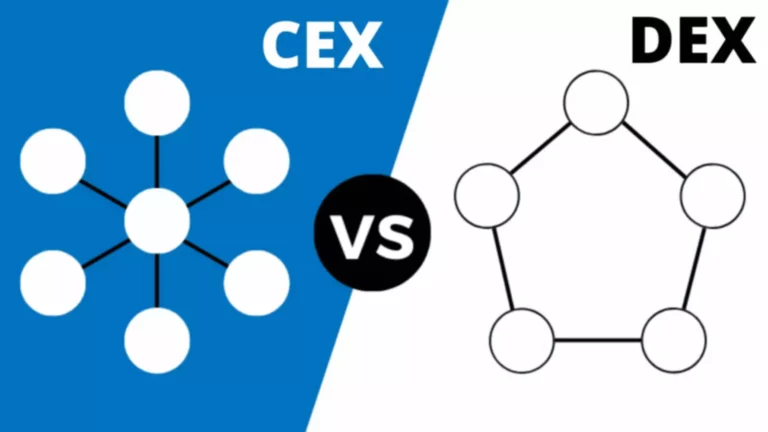The ICO bubble burst in 2018—shortly after, initial exchange offerings (IEO) emerged, where exchanges began facilitating token offerings. Exchanges claimed to have vetted the token offerings, reducing the risks to investors; however, scammers used the exchanges to promote their scams. To better understand this concept, let’s compare it to fiat currencies. The US Dollar, for example, is a fiat currency that is not backed by any physical commodity.
- How can you identify the differences between these two categories of digital assets?
- Instead, transactions are recorded on a public digital ledger called a blockchain, which is maintained by a network of computers around the world.
- Believe it or not, some tokens on the Ethereum chain have grown so far that they outweigh many coins with their own entire networks.
- A few popular examples of crypto tokens include Tether (USDT), USDC, and Uniswap (UNI).
- This gives you an insight into where that native coin is going, and whether the participant responsible for processing transactions is doing so effectively.
- This is because cryptocurrencies operate independently of a central authority, while tokens are created and managed by a specific entity or organization.
You can notice how the blockchain network protocol itself issues cryptocurrencies, which serve as the native currency of the blockchain network. Cryptocurrencies also serve another crucial purpose in blockchain networks other than serving as the preferred means of payment for transaction fees on the blockchain. Blockchain networks also incentivize users with cryptocurrencies for securing the network.
What are cryptocurrency coins?
The term cryptocurrency refers to a class of digital assets that rely on cryptography and blockchain technology. Indeed, the feature that ties all cryptocurrencies together is their reliance on blockchain networks. Developers can create crypto tokens for specific projects in the form of smart contracts and deploy them on existing blockchains.

Additionally, some exchanges only allow for the trading of specific coins or tokens. So, if you’re looking to trade a particular coin or token, make sure that it’s available on the exchange you’re using. Lastly, tokens can offer utility beyond simply being a tradable asset.
Mainnets Unveiled: Decrypting the Heart of Blockchain
And lastly, both cryptocurrencies and crypto tokens (even those belonging to different blockchain networks) can often be stored in the same crypto wallet. Check out Brave Wallet if you’re looking for secure storage for all your crypto assets (including cryptocurrencies, tokens, and NFTs) built right into your browser. While crypto coins mimic traditional currencies, crypto tokens are more like assets or even deeds.
It is easy to confuse them because both fall under the cryptocurrency umbrella term. Basically, cryptocurrency is a digital asset based on blockchain technology, and both tokens and coins fit this definition. A few popular examples of crypto tokens include Tether (USDT), USDC, and Uniswap (UNI). USDT is the largest stablecoin by market cap, providing a way for investors to move into dollars while remaining within the crypto ecosystem.

You can even buy tokenized real-world assets on the blockchain today. There are crypto tokens that represent precious real world assets such as gold or silver too. This key use-case has built the base of the cryptocurrency market as we see it today.
What are tokens?
Ethereum, for example, has a plethora of ERC-20 tokens (utility tokens) and ERC-721 tokens (NFTs) built atop its protocol. These standards make it easier for crypto tokens to be stored, used, and exchanged on a blockchain in the same way as the chain’s native cryptocurrency. The difference between these assets in traditional finance and DeFi is ownership. While your bank doesn’t give you true ownership of any of the assets you store in your bank account, your crypto wallet is built a little differently.
Cryptocurrencies are the “native” digital asset of a blockchain network. They incentivize people to run nodes, validate transactions, and keep blockchains operational and efficient. The term “crypto coins” is more specific and often used to refer to individual units of a cryptocurrency.
What is a crypto token?
The core tenets of blockchain technology, transparency, provenance and immutability, have the power to change the financial market as we know it. In addition to these traditional uses, some crypto coins can also take advantage of smart contract technology to offer additional features. For example, DASH is an altcoin that acts as a cryptocurrency but also gives holders the ability to vote in a decentralised autonomous organisation (DAO). Smart contracts are basic protocols for automating transactions according to mutually agreed conditions in contracts. The use of smart contract-based crypto tokens can introduce many value advantages in different industries, such as real estate sector.
You should not construe any such information or other material as legal, tax, investment, financial, or other advice. Nothing contained herein shall constitute a solicitation, recommendation, endorsement, or offer by Crypto.com to invest, buy, or sell any coins, tokens, or other crypto assets. Returns on the buying and selling of crypto assets may be subject to tax, including capital gains tax, in your jurisdiction. Cryptocurrencies and tokens are integral to decentralized finance (DeFi) and the Web3 revolution.
The primary difference between the two digital assets in crypto space is that cryptocurrencies are native assets on blockchain networks. For example, BTC on the Bitcoin blockchain or ETH on the Ethereum blockchain is cryptocurrencies. The blockchain terms; token and cryptocurrency are often used interchangeably, as these are both digital assets on blockchains. While both cryptocurrencies and tokens are digital assets, there are several key differences between the two. The most significant difference is that cryptocurrencies operate independently of an existing blockchain, while tokens are created and managed on top of an existing blockchain. Like crypto coins, crypto tokens are designed using blockchain technology; however, crypto tokens aren’t native to a blockchain.
Because you can not create a coin without building a blockchain, that means it is not easy to launch a coin. Non-fungible tokens (NFT)s are unique tokens that cannot be replicated. The token has an original marker on the blockchain proving that the person who owns the wallet the NFT lies in does https://www.xcritical.in/ in fact own the token. Some common proof of work coins include Bitcoin (BTC) and Litecoin (LTC). When miners find a new block, they receive new coins as a reward for securing the network. This incentivizes people and groups to mine on their own, helping to keep the network decentralized.
What are Crypto Tokens and how do they differ from Cryptocurrencies?
As a practical example, decentralized storage provider Bluzelle allows you to stake your tokensto help secure its network while earning transaction fees and rewards. A crypto token is a representation of an asset or interest that has been tokenized on an existing cryptocurrency’s blockchain. ” might be a little different for you now as compared to the beginning of the discussion. Cryptocurrencies VS Tokens differences You can notice the numerous subtle differences between cryptocurrencies and tokens. The basic overview of cryptocurrencies and crypto tokens, as well as their design and functionalities, reflects a lot on the differences between them. Another significant highlight in favor of crypto tokens in the difference between cryptocurrencies and tokens is their application in dApps.
Knowing this difference may help crypto users to make better informed decisions. Unlike cryptocurrencies, tokens are often used for more than just holding and exchanging value. Crypto tokens also far outnumber cryptocurrencies because of their flexible use cases, and relative ease of development. Crypto tokens aren’t meant to be standalone currencies, but rather to represent a certain value, utility, or function within a specific blockchain network or platform.
The most prominent factor for identifying token vs. cryptocurrencies differences is the outline of their use cases. An outline of the use cases of cryptocurrencies and crypto tokens can offer a clear impression of how they are different from each other. As a matter of fact, the use cases of crypto tokens and cryptocurrencies serve major inputs for defining the difference between cryptocurrencies and tokens with better clarity.